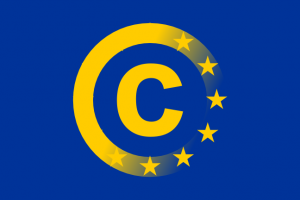Betere waardering, gebruik en handhaving van IE-rechten in de interne markt
Commission Communication on better valuation and utilisation of IPRs in the Internal Market, MARKT D3 04/2013. Objectives of the initiative - What are the main policy objectives?
Objectives of the initiative - What are the main policy objectives?
- Improve the smooth functioning of the Internal Market by providing tools that would encourage investment in research and development of innovative products and technologies and subsequently facilitate their commercialisation by creating the market for financing and efficient licensing of IPRs in the Union.
- Ensure that public R&D funding is optimised.
- Encourage FDI and technology transfer into the EU to stimulate growth and investment.
Context and problem definition
The Single Market Act II recognises the need to encourage investment in intangible assets and to help EU based innovative companies to transform their R&D efforts into competitive gains. While the EU intellectual property acquis establishes measures for the protection and enforcement of intellectual property rights (IPRs), it does not provide guidelines on the cross-border management of these rights that would increase commercial benefits for both innovative enterprises and consumers. The latter could be achieved i.a. by encouraging (i) proper valuation (estimating value) of intellectual property so as to encourage cross-border public and private investment by accepting the use of IP-related assets as collateral, and (ii) cross-border valorisation (maximising profit through efficient management) of IPRs that would increase the competitiveness of European innovative companies. This, in turn, would result in the creation of broader and more easily accessible choice of IP-related goods and services for consumers.
The initiative should give rise to more investment in creation and innovation within the EU leading to growth and job creation. Low or insufficient valuation of IPRs that account for 50% of total intangible assets within the EU impedes the achievement of the Europe 2020 growth strategy that aims at stimulating innovation and growth and also prevents the internal market form yielding its full economic potential.
Improved valuation of IPRs would complement the EU's IP and innovation policies, creating an attractive environment for the development of innovative enterprises within the EU and having an Internal Market characterised as a "brain pole" instead of a "brain drain". It would also help improve the performance of public R&D funds by ensuring that commercial spin offs of public entities (such as University research labs) become economically more viable and less subject to takeover by major international corporations.
What are the main problems which this initiative will address?
EU IPRs are not being fully exploited within the Internal Market partly because their actual market value is not recognised as collateral against which business credit or venture capital can be raised. The sub-optimal valuation of IPRs is undermining the possibility for innovative and creative SMEs within the European Union to grow and create the sustainable, high quality jobs that the EU requires, in particular in these recessionary times.
This sub-valuation of IPRs results in or is accompanied by a lack of proper valorisation of IPRs: If owners of IPR cannot properly assess its value, it is even more difficult for them to make proper use of it, e.g. by licensing it, by selling it or by using it as collateral in financing deals The Internal Market does not allow for an optimal management of IPRs in terms of offering the most welfare-enhancing licensing opportunities to EU creators and
innovators, nor for an efficient cross-border matching between the innovators/creators and potential financiers/licensees. This impedes the mobilisation of the full potential for investment into innovative activities that should play a key role in recreating sustainable growth within the EU. A number of factors can explain why this market is currently not working. They include (i) the relatively high costs of IP registration within the EU (compared to other major trading blocs), (ii) dissuasive litigation costs, (iii) ineffective redress against abusive practices of certain large rights holders and non-practicing entities and (iv) uncertainty regarding cross-border enforcement.
Commission Communication on civil enforcement of IP within the Internal Market, MARKT D3, 03/2013.
 At this stage, no policy options are considered.
At this stage, no policy options are considered.
What are the main problems which this initiative will address? The application report regarding Directive 2004/48/ EC and the subsequent public consultation revealed a certain number of shortcomings in the IPR enforcement system in the internal market (e.g. unclear legal provisions, diverging national interpretations/practices, uneven access to justice for SMEs, unsuitability of the legal framework for the digital age etc.). The Communication will give a structured overview of the issues identified, so that they can be addressed by appropriate initiatives subsequently.

























































































